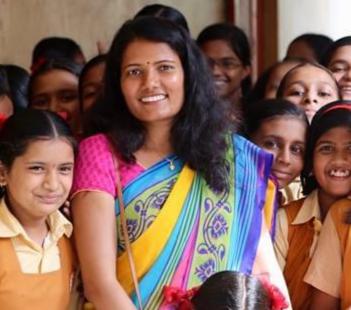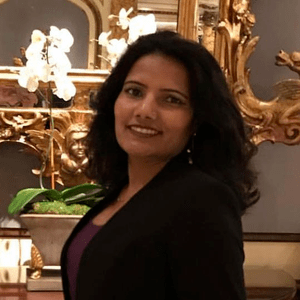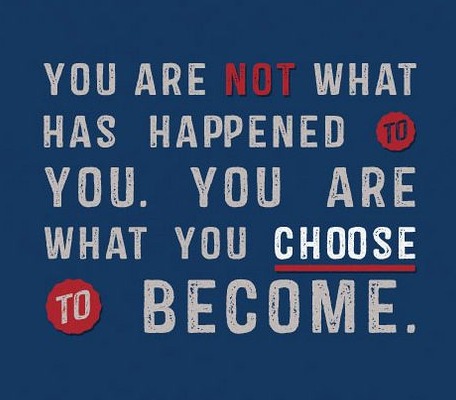Sunday Inspiration: The Story Behind India’s First Female Taxi Driver & Padwoman
5 minuteRead

Today’s Sunday inspiration stories are about two fierce women who are the creators of change in their own unique way.
Selvi Gowada - India’s First Female Taxi Driver

Source: CNN
Selvi Gowda, who was married at the age of 14, had a violent marriage and a horrific existence in which her own husband repeatedly sold her for prostitution. She is now a trailblazing businesswoman in Mysore, where she owns a successful cab firm.
She was a 14-year-old child bride who was at her wits' end and was considering committing suicide by burying herself under the tires of an oncoming bus. Selvi Gowda, however, chose to get on the bus. She ended up sobbing in front of St. Philomena's Church in the Indian city of Mysore. She was rescued and taken to Odanadi, a shelter for abused women.
After 14 years, Selvi has completely changed. She is a leading businesswoman who runs a cab service in Mysore and speaks for women's rights.
"Driving with Selvi," a documentary by Canadian filmmaker Elisa Paloschi, details Selvi's transformational experience. In 2004, Paloschi and Selvi connected at the women's shelter. Selvi, according to Paloschi, who volunteered there, truly stood out.

Source: CNN
Selvi knew nothing about work when she first came to the Odanadi shelter. They started by instructing her on threading, a method for shaping and plucking eyebrows with a thread. The Odanadi director, however, believed Selvi was capable of greater things and advised her to enroll in driving school.
Selvi didn't even know how to ride a bicycle at the time. She felt frightened. The director of Odanadi was informed by the driving instructor that she should probably look into other options.
Two additional ladies had previously begun their training and were competent drivers. The shelter eventually gathered enough money to purchase a Maruti Suzuki Omni van for the three young women to use as a cab after they had finished their training.
Once on the job, the women learned that being a cabbie involved more than just being able to drive. The passengers could be intimidating, and it was difficult to interact with them. Selvi admitted that initially, even talking to clients made her nervous. She persisted, though, and eventually became referred to as India's "first female cab driver," while the other two women gave up.
She is careful not to take any unwarranted chances. Selvi, for instance, doesn't prowl the streets in search of fares. Instead, she collaborated with tour operators and established a steady clientele in the region.
She met her husband from work as well, a driver named Viji. Selvi is taking some time off from work to raise her two children.
The message Selvi preaches to abused women is self-reliance. Selvi encourages independence to women who are being abused.
It will never happen if you believe that someone, such as your mother, brother, or anyone else, will come to your aid, she stated. "You must ascertain what you require for yourself and develop self-assurance that you are capable of achieving your goals. After that, your options are endless."
Maya Vishwakarma - The Padwoman of India

Source: Sukarma Foundation
In the Madhya Pradesh village of Narsinghpur, Maya was born and raised. Being born and raised in a remote location, Maya faced several issues related to women's hygiene, primarily. After leaving her hometown and traveling to cities, Maya became aware of the facts she had been missing out on regarding her menstrual hygiene. Maya rarely received training on women's hygiene at her family or school because it was considered taboo at the time.
After moving, Maya saw a big difference in how mensuration was treated in India and the United States. Maya was shocked to learn that many people were not aware of the significance of disseminating information about menstrual hygiene, and she couldn't help but imagine how difficult it would be for women who had no access to quality healthcare. Maya understood that building her career around medical research was a noble goal.
Maya didn't want to pursue "the dream" of working in a big city and earning money; she wanted to achieve something meaningful in her life. Maya came to the realization that if you wait until you have "enough" money to do anything charitable, you rarely have any energy or time left while working in Silicon Valley. Based on her experiences in the past and the present, Maya decided that a purposeful and meaningful life was more important than a significant sum of money. Her life's trajectory changed at this point.

Source: Sukarma Foundation
Maya has relentlessly conducted fieldwork on "Menstrual Hygiene for Rural and Tribal Girls/Women." She went to companies making sanitary pads as well as factories that make the pads. Additionally, she met PADMAN Arunachalam Murganatham in Coimbatore, India, his hometown. She looked into a few other firms in India that produce reasonably priced sanitary napkins and pad-making equipment after being greatly inspired by his work and the outstanding accomplishments in his native state.
In 2016, she founded the Sukarma Foundation, which manufactures sanitary napkins. In the Narsinghpur district, the Sukarma Foundation opened a small factory in 2017 to produce sanitary napkins, giving women a job and educating people about menstruation.
Maya thinks it is essential to identify and follow your passion because we only have a finite amount of time on earth and a lot of responsibilities placed on us. She makes the point that there have been individuals who have enjoyed luxurious lives yet still feel emptiness. We should strive to give our lives with a purpose because being born into this world is a gift. Making sure you contribute back to the community is the key to a fulfilling life.
Write, Record and Answer! Consume Unlimited Content! All you need to do is sign in and its absolutely free!
Continue with one click!!By signing up, you agree to our Terms and Conditions and Privacy Policy.











